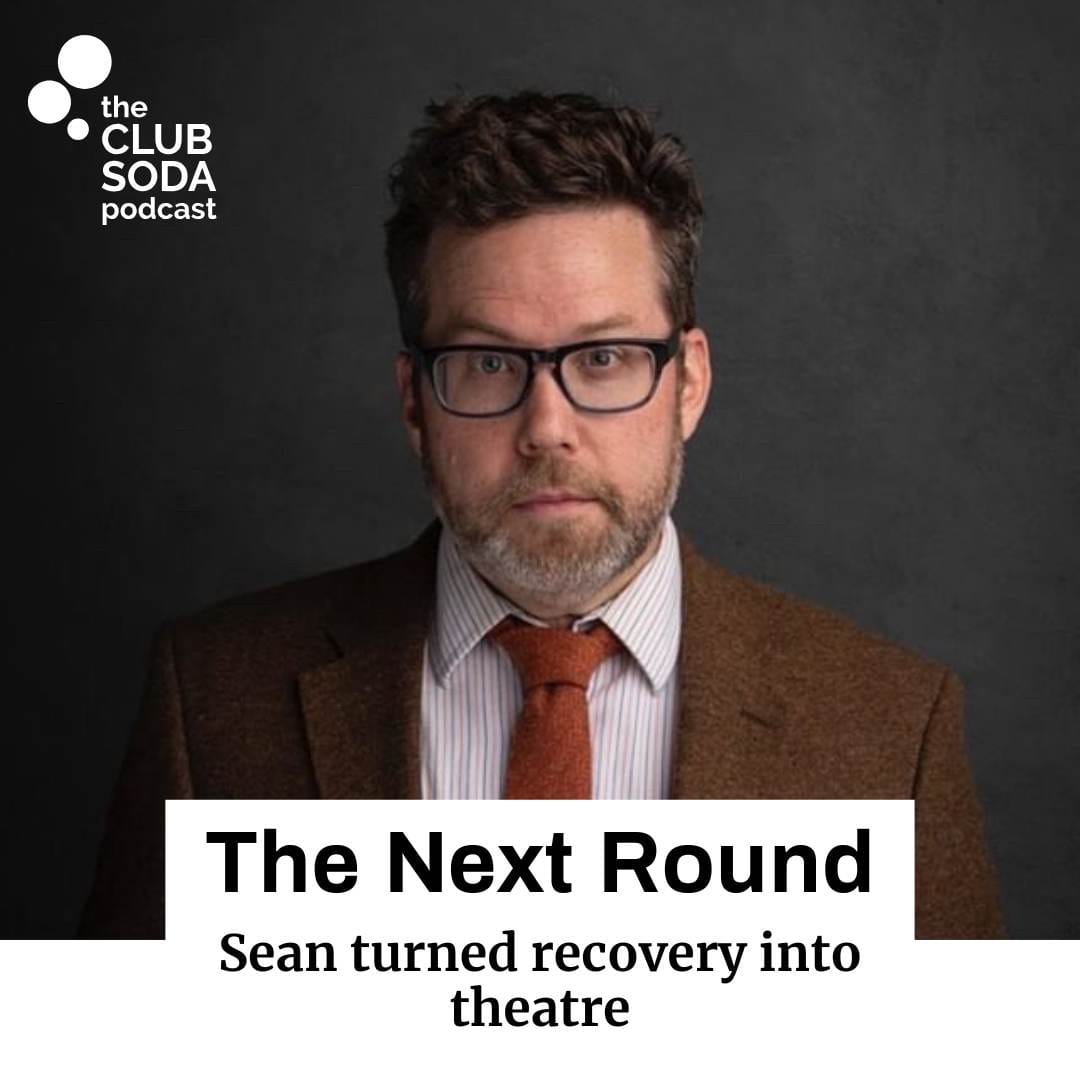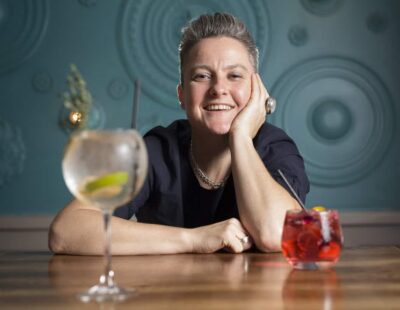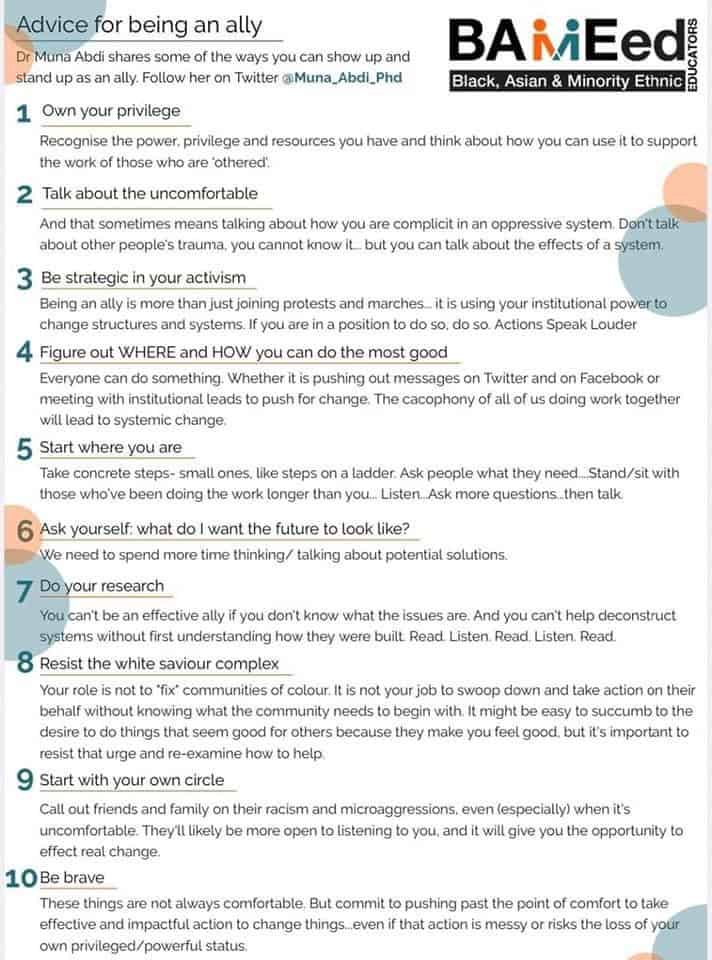
This website uses cookies to improve your experience. We'll assume you're ok with this, but you can opt-out if you wish. Read More
The Next Round: What happens after you change your drinking?


The murder of George Floyd has been on my mind a lot over the last week, as it would have been for many of you. It has exposed, even more starkly than before, the racism in our societies, the need for change now, and the urgency of working in solidarity to make that change happen.
You may think this has nothing to do with a community focused on changing drinking habits. And for the most part you might be right. Our priority has always been to help you – and anyone who needs our help – to drink less.
But we are a community that believes in change. While we cannot control how the sober or mindful drinking community responds to world events, we do have the responsibility to influence and speak up. So how do I respond personally? And what can Club Soda do?
This is how I have responded. Your response is your own. There are many ways to actively support and affect change in all spheres of life.
I have been a community and equality campaigner since I was 11. I remember the day I realised the world was not equal. It was in a drama class. In response I wrote a play about marriage and how it seemed like a cage to keep women in their place. I still have the script!
In my years in active politics I spent years chairing and sitting on committees on equalities, faith, disability and community cohesion. I worked for Stonewell and have campaigned on LGBT+ rights and women’s rights. These two areas of injustice that have affected me personally.
Despite all of this, I hold huge amounts of unconscious bias. I surprise and shock myself sometimes when I notice it. There is a tonne of cultural hardwiring that affects me every day, despite how woke I think I may be. Being able to recognise that bias and take active steps to fix it is a lifelong task and takes effort and energy. Something that sobriety has helped with. You can read more about that here.
Racism is real. It exists in the structure and fabric of society. Our societal foundations are white, straight, able bodied, male and christian. It affects everything: from the way banks work, how medical care is delivered, even the height of the bar in a pub. Everything has been built by and for that ‘man’. This is unconscious bias, it goes hand in hand with the more obvious racism and discrimintaion we see everyday.
It makes me angry, but in my mid 30’s it also turned into something else. I realised that I couldn’t solve this problem. So I drank to shut away how powerless I felt and to shut down the feelings of shame and guilt. It is not an unusual reaction. Many of us do it. From the 9/11 terror attacks to the race protests in Bradford, Oldham and Burnley, we often drink when big world events seem too big to comprehend and when we feel there is nothing we can do in the face of the awfulness of it all.
Stopping drinking is the first thing you can do. It is within your power and it is a positive act. People who have taken control of their drinking are very good at looking inward, reflecting, sitting with uncomfortable feelings, and then making change. This is a skill set you are all developing, and that can be applied to systemic issues in society.
Alcohol stops you asking questions. And drinking robs you of the energy to engage with the problem, to educate yourself, to understand how best you can support others or make a difference yourself. Acts of solidarity don’t have to be big to be impactful. They can even be as simple as changing your shopping habits to avoid racist newspapers or making a donation.
I don’t have the lived experience of racism to tell you how it feels from a personal perspective. What I can do is tell you how seeing racism happen every day makes me feel. I can also help amplify the voices that need to be heard. I am an ally in this fight as my straight identifying friends are allies on LGBT+ issues.

To be a good ally you need the time and energy to ask questions and act in a way that is authentic to you and complements rather than downs out the voices of the people that need to be heard. Here are some of the things I do:
If you take a look around Club Soda, you’ll notice that we are largely a white, middle class and female group, though with a higher than average membership from LGBT+ communities. This isn’t a surprise: communities often emerge as people are attracted to stories of people like them. So to some extent, Club Soda looks a bit like me (and Jussi and Dru). Regardless of this, we want our community to be a place where everyone feels welcome.
We do not tolerate racism in Club Soda, any more than we tolerate sexism, homophobia, discrimination, or any kind of bullying. It is our first rule. Our 45 volunteer admins take down posts and remove people from our community who share hate and make others feel unsafe. We always want to be more welcoming and we always want to hear ideas on how we can do that. You can email me any time.
We also recognise there is no one-size fits all community (and nor should there be). Club Soda can’t help everyone as there is a limit to our lived experience. So we work collaboratively with others, signposting people to communities that can support them better than we can. Something I learnt in my work as a chief executive of an HIV charity, is that you can’t be everything to everyone – but you can work with, encourage, mentor and help secure funding for people that can fill the gaps better than you. And we do that every day in Club Soda. It is core to our values.
There’s always more to do – more groups to find, more influencers whose voices we can amplify. And we want to do more. If you are making a difference in your community, or know someone who is, please tell us. We want to do what we can to help.
We are also thinking hard about the festivals and events we run. We’ve never taken anyone’s involvement in our events for granted. And when we’ve brought diverse voices to the stage, that’s always been because we respect and value people’s experience and wisdom, and want to bring them to a wider audience. When we invite people of colour, we hope that’s never been perceived as tokenistic. We apologise if we’ve ever caused anyone hurt. We’ll be honest: running big events for free has always limited our ability to involve people who can’t afford to volunteer their time. In future, we may need to start charging for our festivals and other events so we can create platforms where everyone’s voices can be heard.
We know there’s always more we can do. We stand in solidarity. And we want to be a good ally. Club Soda isn’t the whole of the sober and mindful drinking community, nor do we want to make this story about us. All of us can do more, to create a world where nobody feels out of place if they’re not drinking. All of us can make the world we live in a better place for everyone.
If you are looking for resources to help you learn and take action, here are some UK organisations:
Stephen Lawrence Charitable Trust
Black Learning Achievement And Mental Health (BLAM) Charity
Some US organisations:
The NAACP Legal Defense and Educational Fund
And there are lists of many more organisations, books, podcasts, and fundraising pages for example in this document, in this blog post or in this article.
This website uses cookies to improve your experience. We'll assume you're ok with this, but you can opt-out if you wish. Read More
| Name | Domain | Purpose | Expiry | Type |
|---|---|---|---|---|
| wpl_user_preference | joinclubsoda.com | WP GDPR Cookie Consent Preferences. | 1 year | HTTP |
| PHPSESSID | www.tickettailor.com | PHP generic session cookie. | 55 years | HTTP |
| AWSALB | www.tickettailor.com | Amazon Web Services Load Balancer cookie. | 7 days | HTTP |
| YSC | youtube.com | YouTube session cookie. | 55 years | HTTP |
| Name | Domain | Purpose | Expiry | Type |
|---|---|---|---|---|
| VISITOR_INFO1_LIVE | youtube.com | YouTube cookie. | 6 months | HTTP |
| Name | Domain | Purpose | Expiry | Type |
|---|---|---|---|---|
| _ga | joinclubsoda.com | Google Universal Analytics long-time unique user tracking identifier. | 2 years | HTTP |
| sbjs_migrations | joinclubsoda.com | Sourcebuster tracking cookie | 55 years | HTTP |
| sbjs_current_add | joinclubsoda.com | Sourcebuster tracking cookie | 55 years | HTTP |
| sbjs_first_add | joinclubsoda.com | Sourcebuster tracking cookie | 55 years | HTTP |
| sbjs_current | joinclubsoda.com | Sourcebuster tracking cookie | 55 years | HTTP |
| sbjs_first | joinclubsoda.com | Sourcebuster tracking cookie | 55 years | HTTP |
| sbjs_udata | joinclubsoda.com | Sourcebuster tracking cookie | 55 years | HTTP |
| sbjs_session | joinclubsoda.com | SourceBuster Tracking session | Session | HTTP |
| Name | Domain | Purpose | Expiry | Type |
|---|---|---|---|---|
| mailchimp_landing_site | joinclubsoda.com | Mailchimp functional cookie | 28 days | HTTP |
| __cf_bm | tickettailor.com | Generic CloudFlare functional cookie. | Session | HTTP |
| NID | google.com | Google unique id for preferences. | 6 months | HTTP |
| Name | Domain | Purpose | Expiry | Type |
|---|---|---|---|---|
| _ga_10XZMT03ZM | joinclubsoda.com | --- | 2 years | --- |
| AWSALBCORS | www.tickettailor.com | --- | 7 days | --- |
| cf_clearance | tickettailor.com | --- | 1 year | --- |
| VISITOR_PRIVACY_METADATA | youtube.com | --- | 6 months | --- |
Join Club Soda for 10% off your first order of drinks for UK delivery. Plus get our latest news and special offers for members to choose better drinks, change your drinking and connect with others.
If you get an error message with this form, you can also sign up at eepurl.com/dl5hPn